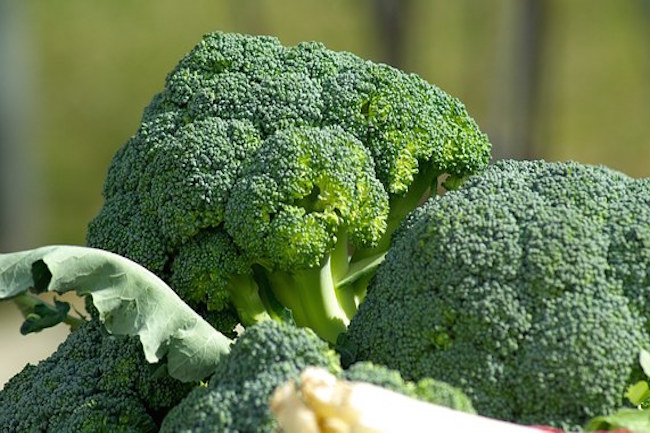Least Favored Veggies Are Top for Your Heart by Dr. Joseph Mercola for Mercola
This likely isn’t the first time you’ve been advised to eat your vegetables, but I’m going to add a new declaration: Eat your vegetables, especially the ones you may not particularly like.
If you’re not a vegetable eater, you technically may get your two to three servings per day by fitting in things like potatoes, carrots and corn (which isn’t actually a vegetable, by the way). But while those may be some of your most favorite veggies,1 they’re not the most nutritious options even though they do have some health benefits.
Cruciferous vegetables such as broccoli and Brussels sprouts (one of America’s most hated vegetables), have a lot more to offer, including protection for your heart.
In a recent study published in the British Journal of Nutrition,2 researchers looked at data from 684 older Western Australian women and found that those who ate more cruciferous vegetables had a lower risk of extensive calcium buildup in their aortas, the main artery that carries blood away from the heart.
The women in the study who ate more than 45 grams of cruciferous vegetables every day, such as a quarter cup of cooked broccoli or half a cup of raw cabbage, for example, were 46% less likely to have calcium buildup in their aortas compared to women who ate little to no cruciferous vegetables.
This is significant because calcium buildup is one of the key markers for atherosclerosis and structural blood vessel disease. When calcium builds up in the arteries, it “hardens” the arteries, hinders blood flow and reduces the amount of blood that circulates around the body. This series of physiological changes is conventionally thought to be a primary underlying cause of heart attack or stroke.3
On a side note, there are other working theories, however, that discount and refute the blocked artery notion. In his 2004 book, “The Etiopathogenesis of Coronary Heart Disease,”4 the late Dr. Giorgio Baroldi wrote that the largest study done on heart attack incidence revealed only 41% of people who have a heart attack actually have a blocked artery.
And, of those, 50% of the blockages occur after the heart attack, not prior to it. This means at least 80% of heart attacks are not associated with blocked arteries at all.
According to Dr. Thomas Cowan, a practicing physician, founding board member of the Weston A. Price Foundation and author of “Human Heart, Cosmic Heart,” three of the core, underlying issues that cause heart attacks are decreased parasympathetic tone followed by sympathetic nervous system activation, collateral circulation failure (lack of microcirculation to the heart) and lactic acid buildup in the heart muscle due to impaired mitochondrial function.
You can learn more about Cowan and his thoughts on this in “A New Way of Looking at Heart Disease and Novel Treatment Options.”
Cruciferous Vegetables Help Keep Your Heart Healthy
Heart disease is the leading cause of death for men and women of all racial and ethnical groups in the U.S., killing one person every 37 seconds.5 Aside from all of the deaths attributed to heart disease, another 12.1% of Americans are living with some type of chronic heart condition.6
You may think that a lot of this comes down to your genetics, but while you may be predisposed to certain conditions, the study confirms that the development of heart disease largely has to do with your diet. This study is groundbreaking because it shows an actual mechanism for how cruciferous vegetables help prevent heart disease.
Lauren Blekkenhorst, Ph.D., one of the lead researchers on the study, explains that the high content of vitamin K in cruciferous vegetables helps inhibit calcification in the blood vessels.7 But there are other nutritional compounds that have a positive effect on your heart too.
One of the most notable is sulforaphane, an isothiocyanate compound that gives cruciferous vegetables their signature odor. If you’ve ever cooked broccoli or Brussels sprouts, you know that smell I’m referring to. While these compounds can certainly clear a room, they are just as powerful when it comes to your health.
Other than sulforaphane, the nutrients in cruciferous vegetables that have a positive effect on your heart health include:8
- Selenium
- Flavonoids
- Anthocyanins
- Polyphenols
- Antioxidant enzymes
Cruciferous Vegetables Can Help Prevent Cancer
Cruciferous vegetables are also rich in sulfur-containing compounds called glucosinolates. When you chew or chop cruciferous vegetables, the glucosinolates come into contact with plant enzymes that speed up their breakdown and produce secondary compounds that help prevent cancer.9




